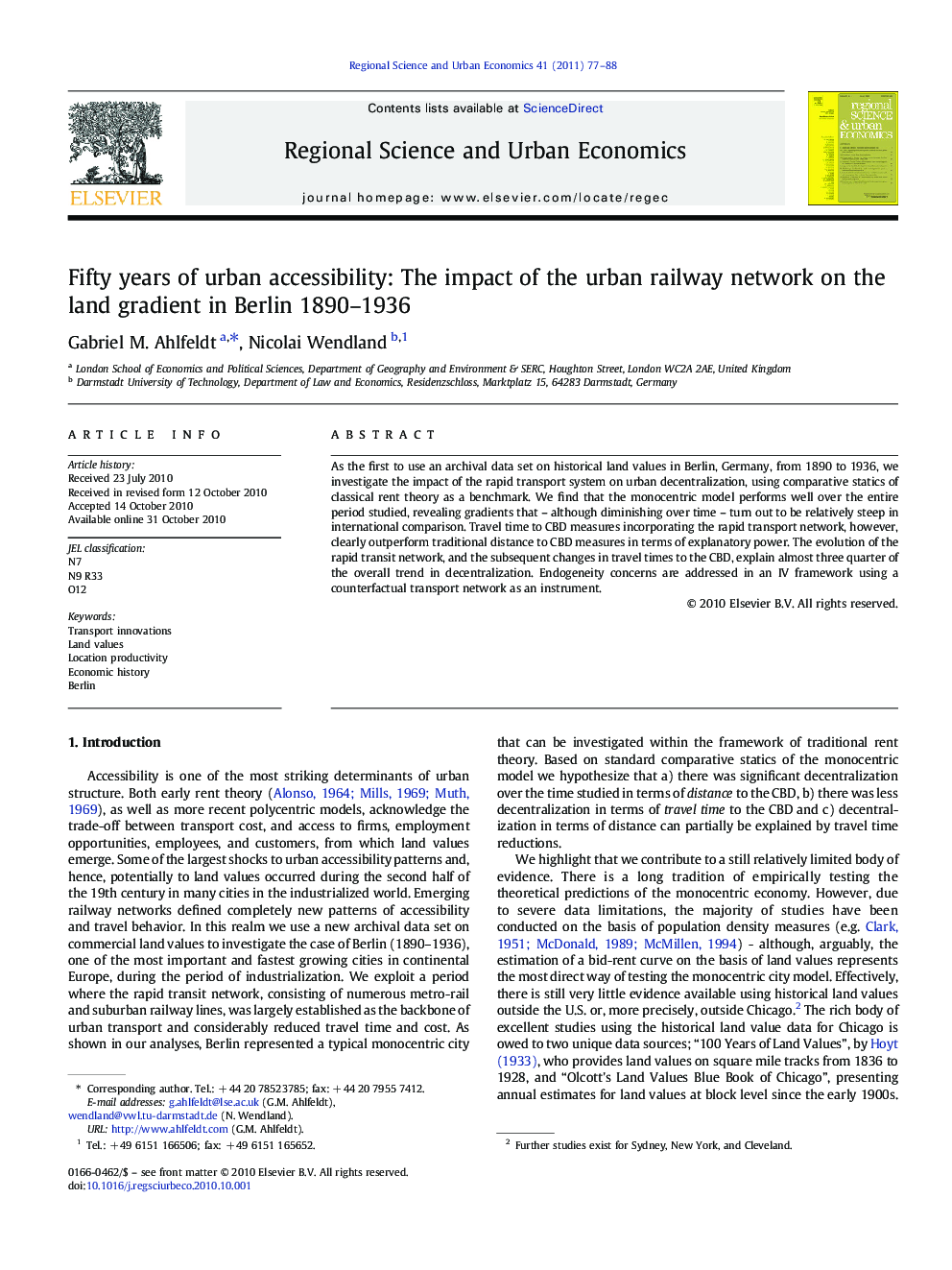| Article ID | Journal | Published Year | Pages | File Type |
|---|---|---|---|---|
| 983420 | Regional Science and Urban Economics | 2011 | 12 Pages |
As the first to use an archival data set on historical land values in Berlin, Germany, from 1890 to 1936, we investigate the impact of the rapid transport system on urban decentralization, using comparative statics of classical rent theory as a benchmark. We find that the monocentric model performs well over the entire period studied, revealing gradients that – although diminishing over time – turn out to be relatively steep in international comparison. Travel time to CBD measures incorporating the rapid transport network, however, clearly outperform traditional distance to CBD measures in terms of explanatory power. The evolution of the rapid transit network, and the subsequent changes in travel times to the CBD, explain almost three quarter of the overall trend in decentralization. Endogeneity concerns are addressed in an IV framework using a counterfactual transport network as an instrument.
